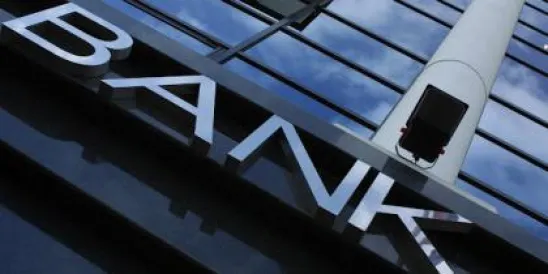The General Election in November, followed by the Georgia runoffs, means major changes may be in the offing for banks.
First of all, the defeat of President Trump will result in the appointment of key new regulators, though the timing of the appointments is unclear. The Biden administration is likely to move quickly to put an acting director of the Consumer Financial Protection Bureau (CFPB) in place. Also, President-elect Biden is likely to see the CFPB appointment as a possible concession to the Warren wing of the Democratic Party, as opposed to giving that wing substantive legislative concessions. With control of the US Senate, the administration no longer has to worry about having to invoke cloture on its nominations. Thus, the Senate will not be a check, as a practical matter, on who might be named director of the CFPB. As a result, banks are likely to face a rather aggressive CFPB over the next four years. There is currently an acting comptroller of the currency, and again this may be an appointment on which Senator Elizabeth Warren (D-MA) and her supporters will weigh in strongly. The Federal Deposit Insurance Corporation (FDIC) chairperson has a set term of office that is not subject to removal by the President of the United States.
Second, while the Democrats retained control of the House, it is by the smallest margin in decades. This will result in Chairwoman Maxine Waters' (D-CA) having a very small majority on the House Financial Services Committee, which will give the committee's moderate Democrats increased importance. It could also mean that Waters will have to be more cautious in the bills she attempts to have reported out of committee.
In a blow to banks, Congressman Greg Meeks (D-NY) has been elevated to the chairmanship of the House Foreign Affairs Committee. He had to relinquish his chairmanship of the House Consumer Protection and Financial Institutions Subcommittee. Meeks is a very reasonable member, so this is a loss for banks. On a happier note, Congressman Blaine Luetkemeyer (R-MO) was elevated to the position of ranking member of the House Small Business Committee. Fortunately, House Republican leadership gave him a waiver so that he will also remain the ranking member of the House Consumer Protection and Financial Institutions Subcommittee. Luetkemeyer is a former bank examiner and banker, as well as a small businessman. As a result of his background, he is extremely effective, particularly in his dealings with bank regulatory officials.
For a number of years, the House has sent banking bills to the Senate, where they would die. This was true when Republicans controlled the House, as well as when Democrats controlled the House. When Republicans controlled the House, Senate rules permitting filibusters and requiring 60 votes to invoke cloture resulted in the House bills not getting Senate consideration. In the past two years, when Democrats controlled the House and sent bills to the Senate, Republicans in the Senate ignored them. It is unclear how this will play out now. The Democrats will control the Senate, though barely. The Senate will be 50/50, with Vice President-elect Kamala Harris casting any deciding vote.
In 2001, the Senate was equally divided in terms of party membership, and the Republicans held the White House and hence the vice presidency. Resolution 8 was adopted at that time, giving the chairmanships of the Senate committees to the Republicans. This means Senator Sherrod Brown (D-OH) rather than Senator Pat Toomey (R-PA) will chair the Senate Banking Committee, if the precedent set in 2001 is followed. Under Resolution 8, in 2001, the committees were evenly divided in terms of party membership as well as staff and offices.
Normally, a tie vote in committee kills a bill; it is not sent to the Senate floor for a vote. Under Resolution 8, however, bills receiving tie votes can be brought to the floor. Of course, a bill unable to achieve a majority in committee is unlikely to be a bill that could obtain the 60 votes needed in order to invoke cloture and cut off a filibuster.
There is talk of eliminating the filibuster or reducing the number of votes required for cloture, though this possibility may have receded a bit. Senator Joe Manchin (D-WV) has stated that he is opposed to the change, and Senator Diane Feinstein (D-CA) has voiced concern as well. The vice president does not vote on Senate rules; therefore, even though Senate rules can be adopted or amended by simple majorities, it isn't clear that the proponents of eliminating the filibuster would have the votes to do so.
If there is an effort to change the rules, it would likely be made following a fight over a popular issue such as sending out $2,000 checks, which President Trump advocated at the end of last year and Democratic leadership embraced.
Third, Brown is likely to be an activist as the chairman of the Senate Banking Committee. Brown has a strong desire to legislate, and he knows the House may flip in 2022. Accordingly, he will see this as a two-year window.
Fourth, bank taxes could go from 21% to 28%. A rise in the corporate tax rate was in the Biden tax plan. With Democrats in control of both chambers, it is possible that this will occur. Of course, given the pandemic, the administration might be concerned that a rise of that amount could seriously affect the economy. It almost certainly would cause a sell-off in the stock market. Fear of this may cool the enthusiasm for a tax increase by the administration, but it is currently unclear how competing priorities between the Biden administration and Democratic congressional leadership will play out. Biden might be happy that the control of both chambers is slim. It will limit the congressional Democratic leadership as to how far it can go.
In any event, it would be an understatement to suggest that this election could have significant consequences for banks.




 />i
/>i

